Don't wanna be here? Send us removal request.
Text
Jeong Kwan
Jeong Kwan is a Zen Buddhist nun and chef of Korean cuisine. She lives in the Chunjinam Hermitage at the Baegyangsa temple in South Korea, where she cooks for fellow nuns and monks, as well as occasional visitors. Kwan does not own a restaurant and has no formal culinary training.[1]
Kwan grew up on a farm, and learned to make noodles by hand at age 7. She ran away from home at 17, and two years later joined an order of Zen nuns, where she discovered her calling of spreading dharma through cooking.[1] Kwan's recipes use aubergines, tomatoes, plums, oranges, pumpkin, tofu, basil, chilli pepper, and other vegetables, which she grows herself.[2] In addition to being strictly vegan, Kwan's recipes omit garlic and onions, which some Buddhists believe arouse the libido.[1][2]
Kwan has influenced chefs including Mingoo Kang, of the Seoul restaurant Mingles, and René Redzepi, of Noma in Copenhagen. She is friends with Éric Ripert, a fellow Buddhist,[1] who has invited her to New York City to cook for private audiences at Le Bernadin.[1][3] In 2017, Kwan was featured on the Netflix series Chef's Table.[4]
0 notes
Link
0 notes
Text
THE POWER OF UNIFORM
Frank Abagnale ( Catch Me If You Can ) - described how his pilot uniform made a huge difference how people in the bank perceived him. He was respected and easily could cash freud cheques.
Liberty Ross ( Model ) - she had visible and extraordinary style which help her to be discovered by Mario Testino while walking in Portobello, London. He asked her to do Vogue shoot and that is how her carreer started.
I have read about these two people today from two different sorces and just felt this connection, this truth, that clothes help you become the person you want to be, clothes define you, give you confidence..I have read that Audrey Hepburngives a lot of thanks to Hubert Givenchy and clothes he made for her movies because it gave her this confidence she needed to become the character.
It doesn’t have to be eccentric , but it should define YOU - make a statement, create your style - other people who’s look,style help them to reach success are: Lady Gaga, Madonna, Dita Von Teese etc.
Everyday “I will dress to impress” pick my clothes with care, create/reinvent myself.
0 notes
Text
1. Draw 2. Dance 3. Run 4. Meditate 5. Get dressed 6. Do hair and make-up 7. Earn money 8. Read 9. Kiss 10. Do something for others
Living out our life purpose is one of the most fulfilling things we can do. It is on the mind of most spiritual awakened people. people often make finding their life purpose more complicated than it needs to be. many times the answer has been in your life all along but your ENERGY was not directed toward it. doing what makes you happy without harming another person is a big clue toward your life purpose.
Ideas - andy warhols pop up book - club ideas invitation to the party - photograph of the guest, andy warhol style ( upload your picture when making a booking ) or drawing or painting - no faking no uninvited guests
gate to another universe, underground world, labyrinths of mind, depicting trouble souls, deceived by camera, false vision, nothing is what it seems, everything has two sides,
Fasting:
- whats your reason to fast ?
- be mentally prepared
- spend lots of time in nature
- drink 2-3 l of liquids
- start to like this “hunger” sensation
- weight your body, notice physical changes
- citrus juices and salt flush in the morning
- tea or coffe with honey - once a day
- meditate
benefits: perfect weight, clear smooth skin, clear, sparkly, intense eyes, clean body inside, the fasting “high”, self-understanding, gain of spiritual powers, finding God, being NOW, being present.
- “greatest, most powerful is the one who controls his every thought ” - W.Churchil
- “Joan Crawford was not born. she was built” - find your own style and have a courage to STICK TO IT> - black velvet? silk, cashmere, wool, classic - monochrome, simple colours, white, grey, silver hair. 2. Find your happiest colours - one that makes you feel good 3. care for your clothes, like the good friends - organised wardrobe, iron, hang, hand wash, only the best quality 4. “both SWIMMING and DANCING strengthened my chest and back muscles” 5. Extreme cleanliness
CREATE YOUR OWN SET OF RULES- you set them so you have to follow them
- eat only fruits, best water-rich. brain and body only need water and glucose to function - fruits are perfect food
- meditate - reduxe wrinkles, improve hair growth, stronger, body heals, skin breaths and detoxify
- yoga, good posture, stretching, - keep your organs in perfect position, think about them when you sit, lie
- running - for my own satisfaction, clear up my mind,
- scrub face, dry body brushing - for youthful look, energy flow
POWER OF REPETITION -
- each time you read something, you may read or understand something new because you are different
- reading something again and again would eventually condition you to USE IT
- repetition is truly the MOTHER OF SKILL
you will make additional distinctions or get new ideas that impact you differently
- you will create new references, thus new interpretations, new actions, new results in your life
ANGELS - pray for guidance, not for things to happen. Only I can make things happen!
1 note
·
View note
Text
“the highest purpose of the human body is to become a clear channel for this light - so that its brightness can dissolve all obstructions, all knots, all resistance.” - the way of the peaceful warrior
Jose Silva method ?
- the body heals 8 times faster with EXERCISE! Exercise floods the body with oxygen and rids it of toxins via the lymphatic system. the body has two circulatory systems - one blood and the other lymph ( a colorless fluid that bathes every cell in the body ) the BLOOD get circulated by the HEART. LYMPH by EXECRISE
0 notes
Text
STEVE JOBS
“remembering that you are going to die is the best way I know to avoid the trap of thinking you have something to lose. You are already naked. There is no reason not to follow your heart”
“ when he was young, he learned that he could induce euphoria and ecstasy by FASTING"
- he refused to take any medications or be treated in any way, for his depression. ” when you have feelings, like sadness or anger about your cancer or your plight, to mask them is to lead an artificial life"
- LSD, exploring the mind-bending effects of sleep deprivation
- in 1972 he began his lifelong experiments with compulsive diets, eating only fruits and vegetables, so he was lean and tight as a whippet. he learned to stare at people without blinking, and he perfected long silences punctuated by staccato burst of fast talking.
- taking LSD and listening to Bach..
- he was deeply influanced by books like BE HERE NOW - “it was profound. It transformed me and many of my friends”
- ZEN MIND, Beginners Mind by Shunryn Suzuki
- Cutting through Spiritual Materialism -by Chogyam Trungpa
- “Steve is very much Zen. You see it in his whole approach of stark, minimalist aesthetics, intense focus”
- Jobs also became deeply influenced by the emphasis that Buddhism places on INTUITION - “ I began to realize that an intuitive understanding and consciousness was more significant that an abstract thinking and intellectual logic analysis”
- Diet for a Small Planet by Frances Moore Lappe - he became vegetarian but also reinforced his tendency to embrace extreme diets, which included purges, fasts, or eating only one or two foods, such as carrots or apples, for weeks on
- his dietry habits became even more obsessive when he read “ Muculess Diet Healing System by Arnold Ehret”
- Fasting - “after a week you start to feel FANTASTIC. You get a ton of vitality from not having to digest all this food. I was in a great shape. I felt I coould get up and walk to San Francisco anytime I wanted!
” The thing that struck me was his INTENSITY. whatever he was interested in he would generally carry to an irrational extreme. Jobs had honed his trick - of using stares and silences to master other people.
- “ I had no idea what I wanted to do with my life and no idea how collage was going to help me figure it out. I was spending all of the money my parents saved their entire life. So I decided to drop out and TRUST that it would all work out okay."
- when he stopped strict vegan diet and meditation practice, he lost creative inspiration, projects didnt excited him
- TRUE ARTIST - if you want to live your life in a creative way as an artist, you have to not look back too much. you have to be willing to take whatever you are done and whenever you were and throw them away. the more the outside world tries to reinforce an image of you, the harder it is to continue to be an artist, which is why a lot of times artists have to say: BYE. I have to go. I am getting crazy and I am getting out of here. - and they go and hibernate somewhere. maybe later they re-emerge a little differently.
- yOUNG sTEVE WHO DROPED OUT OF COLLAGE, WORKED AT HIS PARENTS GARAGE, HIS FATHER COMES AND says: "Steve either make something you can sell or go and get a job” 60 days later a wooden box that his dad made for him, the first Apple computer was created"
- The lesson Jobs learned from his Buddhist days was that material possessions often CLUTTER life rather than enriched it"
- his role model was J.Robert Oppenheimer
- he was deeply influenced by the book: The Innovator’s Dillema by Clayton Christensen
0 notes
Text
if you are not in ALIGNMENT with your GOAL FULLY and in the first place you are basically wasting your time!
- the alignment isnt just a surface, conscious alignment, you need to be aligned at all levels. you need to address your “what ifs” and “buts” about issue fully
- when you do that you GET OUT of your own way and can MAKE THINGS HAPPEN without those patterns of self-sabotage
1. WRITE Down your goal, dream, aspiration
2. Write down your immediate gut response when you read your goal
0 notes
Text
Joe Dispenza
- everytime we learn something new, you make a new connections in your brain, you can change our brain - think new thoughts, make changes, new experiences, do something different ! if there is no new experience - our biology, reality stays the same.
- your environment creates your personality
- old self -> new self - when you start to interrupt your old being, you start to feel differently, uncomfortable at the begining. Body wants to go back to the same, familiar state at the begining, thats why change may be hard at the begininig.
- The best to create your future is to create it.
- brain doesn’t know the difference between inner and outer world - emotions give the body the taste of the future events. If you are feeling the same. Start your day with awarness, try to make small changes, feel great
-relaxed, focus on the present moment, feeling good, then manifesting takes place - when we in fear, inpatience, frustration, forcing- nothing will change, we cant manifest anything
- Everymorning meditation - we should not get up from meditation until we feel like the person we want to be. Try to maintain this state entire day, be aware of everymoment, how you feel. Decide who you want to be - make a time to do it. Redesign your day, yourself. Meditate until you feel great - only then changes occur.
The brain learns by suprises and mistakes.
7 steps to make change :
1. Intention - be clear about you resolution, ongoing, declaration, you are telling your brain that you need, it, write it down, it should produce some positive feeling, writing down has more value than mental statement, ongoing intention - my mission is to be healthy, rich, educated etc. - its not something thats it limiting. there is never end to that.
2. Get clear on your thought why you want to change - health, wealth,
3. Review, Plan - if you have no plan you have nothing to follow - you have to review it everyday, in the morning and evening, review everystep, what do I do today to get me closer to my goal ? set the step and follow them each day - mental rehersal
4. Test drive - demonstrate this change everyday, remimnd yourself about this during the day, After few times the change will stop being uncomfortable, you can break the habit.
5. Track your changes - create simple reward system, where you can review daily choices, like you woke up early, exercised, etc. don;t wallow about your failure, just continue your journey, don’t let negative emmotions to stop your progress, when your behaviours match your intentions reward yourself
6. When you change energy - you change your life.
7. Reminders that keep you on track - pictures of yourself, quotes, etc.the more you stay conscious the more inspired you are, the more energy you have
INVEST IN YOURSELF - stay conscius, reinvent yourself you are not your past,
0 notes
Text
Cheryl Richardson -
- setting goal - “make this or something greater occur in my life” say this prayer before setting yor goal, you will be more relaxed when you will not get exactly what you wanted, because you know you will always get things the best for you
- start setting goals for the area where you energy level is draining you the most - exmaple - finances. Fear of money affecting all other areas in you life - your health, relationships etc.
- remove everything and everyone from you life that doesn’t make you happy,doesn’t feel good
- if it doesn’t feel good, I am not going to do it !
- everytime you want to change something about a person - think how you can use this energy to change yourself ! - you can’t change people, you can only influence them by giving them good example.
-how do I need to change to achieve what I want?
0 notes
Photo
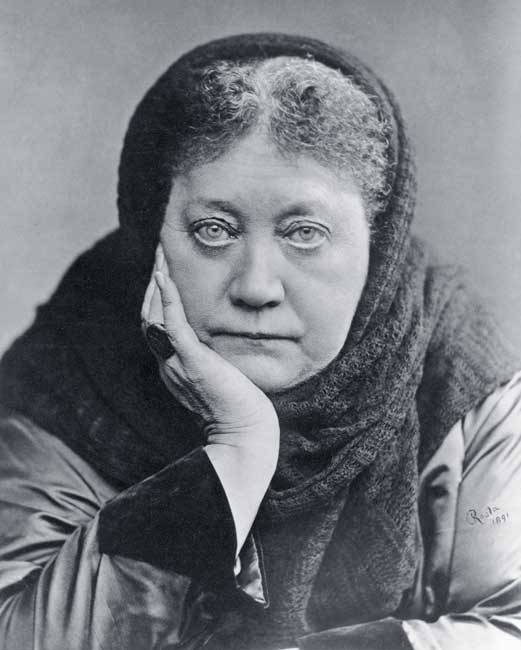
H. P. Blavatsky (1831-1891) was one of the most extraordinary and controversial figures of the 19th century. The influence of her life, writings and teachings on world thought has been significant.
Helena was an exceptional child, and at an early age was aware of being different from those around her. Her possession of certain psychic powers puzzled her family and friends. At once impatient of all authority, yet deeply sensitive, she was gifted in many ways. A clever linguist, a talented pianist and a fine artist, she was yet a fearless rider of half-broken horses, and always in close touch with nature. At a very early age she sensed that she was in some way dedicated to a life of service, and was aware of a special guidance and protection.
In the Spring of 1873, Helena was instructed by her Teacher to go to Paris, and on further direct orders from him, left for New York City where she landed July 7, 1873.
H.P. Blavatsky was then forty-two years old and in controlled possession of her many and most unusual spiritual and occult powers. In the opinion of the Mahatmas, she was the best available instrument for the work they had in mind, namely to offer to the world a new presentation, though only in brief outline of the age-old Theosophia, "The accumulated Wisdom of the ages, tested and verified by generations of Seers...," that body of Truth of which religions, great and small, are but as branches of the parent tree. Her task was to challenge on the one hand the entrenched beliefs and dogmas of Christian Theology and on the other the equally dogmatic materialistic view of the science of her day. A crack, however, had recently appeared in the twofold set of mental fortifications. It was caused by Spiritualism, then sweeping America. To quote Helena’s own words: "I was sent to prove the phenomena and their reality, and to show the fallacy of the spiritualistic theory of spirits."
On September 7, 1875, these three leading figures, together with several others, founded a society which they chose to call The Theosophical Society, as promulgating the ancient teachings of Theosophy, or the Wisdom concerning the Divine which had been the spiritual basis of other great movements of the past, such as Neo-Platonism, Gnosticism, and the Mystery-Schools of the Classical world.
It is believed by some Theosophists that after the present round of human spiritual evolution by reincarnation of souls in root races is completed several dozen million years from now, the human race will migrate to the planet Mercury to continue its spiritual and physical evolution.
http://www.crystalinks.com/blavatsky.html
0 notes
Link
0 notes
Photo
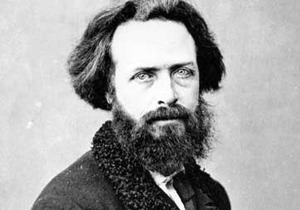
Arnold Ehret
29 July 1866 – 9 October 1922)[1] was a German health educator and author of several books on diet, detoxification,fruitarianism, fasting, food combining, health, longevity, naturopathy, physical culture and vitalism.
Ehret was a founder of vitalism in dietetics, and pioneer of Ehretism. He claimed to have discovered that the human body is an "air-gas engine" that is powered exclusively byoxygen and that a diet consisting of fruits, starchless vegetables and edible green leaves ("herbs"), which he dubbed 'mucusless' foods, is the optimum food for human consumption.[2] Ehret maintained human health was determined by the state of the milieu interior,[3] a term and principle espoused earlier by Louis Pasteur.[4] He attempted to demonstrate that mucusless foods were the key to peak health and produced a treatise entitled The Mucusless Diet Healing System.
At 31, he was diagnosed with Bright's disease (inflammation of thekidneys) by Dr Gustav Riedlin, and pronounced incurable by 24 of Europe's most respected doctors.[7] He visited several sanitariums in Europe to learn holistic methods and philosophies including the Sebastian Kneipp sanitarium.[7]
n 1899, he traveled to Berlin to study vegetarianism, and where he visited 20 vegetarian restaurants, and the Lebensreform co-operative at 'Eden', a vegetarian fruit colony inOranienburg.[15] He took a course at a university of medicine, physiology and chemistry, and explored natural healing, and later, courses in naturopathy, physical culture, anti-medicine, magnetic healing, mental healing, Christian Science and reform movements.[7] Still without health, he went to Nice, in France, where he adopted a fruit and milk diet, with mixed results, as he was still unsure about fasting which he had heard about but was unfamiliar with.
After returning to Germany, he reverted to "good eating". The next winter, he took a trip to Algiers in northern Africa with a French bicyclist,[16][17] called Peter [18] where he experimented with fasting and a fruit diet.[7] In a desperate attempt to end his health problems, Ehret decided to stop eating, and was surprised to find that he did not starve, but gained in strength and vitality.[19] Due to his new lifestyle, Ehret claimed to have cured himself of his diseases and to be able to perform feats of physiological strength, including a 1000 mile bicycle trip from Algiers to Tunis which he undertook with the trained athlete in under 14 days
On a separate journey through southern France to northern Italy where he walked continuously for 56 hours
He then travelled to California, which was of special interest to him, since it was undergoing a horticultural renaissance due to botanists like Luther Burbank, who later paid tribute to Ehret.[27] At the time, the University of California, owned the world's largest collection of rare fruits.
His course on The Mucusless Diet Healing System, became a book of 25 lessons for his students, and later, his most important book. Ehret also developed and marketed the Innerclean Herbal Laxative
Ehret claimed that pus- and mucus-forming foods were the cause of human disease,[48] "schleimlose" (slime-free) foods were the key to human health[49][50] and "fasting (simply eating less) is Nature's omnipotent method of cleansing the body from the effects of wrong and too much eating.
In 1907, Ehret who was based in Freiburg, visited Monte Verità,[69] a nature life colony in Ascona near Lake Maggiore, whose visitors included Lenin and Trotsky.[76] After collaborating with Henri Oedenkoven who owned a sanitarium at Monte Verità,Ehret opened a sanitarium in Ascona, Switzerland[79] and another 'Fruit and Fasting Sanitarium',[80] in nearby Lugano (Massagno), treating thousands of patients considered incurable
Within 14 months, Ehret fasted for 126 days without food.[82] He had completed a fast of 21 days, one of 24 days, one of 32 days, and one of 49 days which he commenced on 26 June 1909 at Kastan's Panoptikum (waxworks), in Cologne under the watch of a notary from the Royal Court.[7][83] In 1909, he fasted, in total, for 105 days.[84] In 1910, he wrote an article for a German vegetarian magazine about his 49-day fasting experience, which gained the public's interest, and which later appeared in his book Lebensfragen(Life Questions)
Having denounced the nitrogenous-albumin metabolic theory in 1909, Ehret learned of a contemporary, Thomas Powell M.D., in 1912, who concurred with his belief that "grape sugar" (simple sugars in fruits and vegetables) was the optimum fuel source, body building material and agent of vitality, for humans, not protein rich foods.[86] Powell had set out his beliefs in the book "Fundamentals and Requirements of Health and Disease", published in 1909.[87] Ehret claimed alkaline foods, which were also mucusless, formed the natural diet of humans. His findings about food values and pH values, were supported by chemist, Julius Hensel,[88] and Swedish chemist, Ragnar Berg
Vitalism principle
Ehret asserted that the body was an air-gas engine, not dependent on food for energy, and that the body was not designed to utilize mucus-forming foods, offering the equationVitality = Power − Obstruction (V = P − O) to demonstrate this.[97] Ehret also claimed the lungs were the pump in the body while the heart acted as a valve, with the blood controlling the heart - a concept also mentioned by Dr M. J. Rodermund in 1904.[98] Ehret further believed that white blood cells were the result of ingesting mucus-forming foods
Ehret maintained new tissue was built primarily from simple sugars in fruits,[101] not metabolised from protein and fat-rich foods.
0 notes
Photo
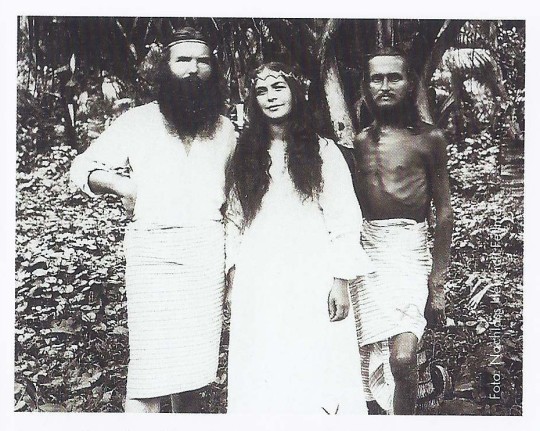
August Engelhardt
Island life
On Kabakon, the only white man among 40 melanesians, he built a 3 room hut, and began implementing his ideas of living close to nature. He gave up clothes completely and fed exclusively on a vegetarian diet, mostly from coconuts. With sun and coconuts as the main pillars, Engelhardt developed a philosophy adopted on increasingly religious lines. Assuming that the sun was the venerable source of all life, he claimed that the coconut was the fruit that grows nearest the sun, and therefore the most perfect food for people. This view, called Cocoivorism, culminated in Engelhardt's statement that the constant consumption of coconuts leads man into a divine state of immortality. Engelhardt also made a living trading in coconuts, dried coconut and sought after coconut oil. After developing an ulcer (yaws) on his right leg, he adopted a coconut monodiet, blaming tropical fruits for his condition.
Evolving philosophy
According to the New York Times (October 15, 1905): "His plan was to have his sect worship the sun. He held that man was a tropical animal, not intended to live in caves called houses, but to wander, as Adam did, with the sun beating upon him all day and the dews of heaven for a mantle at night. Living such a life, he believed that the healing and curative powers of the sun would in time render a man so immune that sickness could be overcome" The further Engelhardt's philosophy developed, the more dramatic was his testimony. He claimed that the noblest organ of the human body was the brain, because it is nearest to the sun, and he denied that such a noble part of the body receives its strength from the deep and dirty digestive tract. He suggested instead that the brain receives its energy from the hair roots, which in turn are fed by sunlight. For this reason the wearing of any head covering would be harmful. He was convinced, that, by eating only coconuts, he would achieve a higher state of mind, almost divine, and a place in a kind of paradise.
4 notes
·
View notes
Photo

Self-Discipline
Natural talent counts for little unless it's supercharged by self-discipline.
Self-discipline can, to some extent, overcome lack of natural talent.
Exercising self-discipline can make the difference between an averagely talented person doing something amazing with their lives and a naturally talented person realizing very little of their potential.
Over the years I've come to see self-discipline as an invisible magic. You can't see, taste, or smell it, but its effects are huge. It can transform fat into slim, sag into buff, uninformed into expert, poor into rich, misery into happiness. It's the submerged part of the iceberg others don't see when they see your 'genius'.
Yes, luck plays its role and who doesn't need the 'lucky break'? But self-discipline prepares you to ride that break all the way to the shore. Self-discipline makes you happier; it gives you that sense of real achievement earned through sheer intensity of sustained focus.
If you really want to succeed at a task then self-discipline is essential.
The myth of easy success
Celebrities have never been more visible in our culture. Famous sportspeople, wonderful actors, and musicians are all over the media. But what we don't see are the thousands of hours of super-focused work these people have put in behind the scenes.
It's easy to feel that success comes easily; that it's just a question of self-belief. But anyone who has achieved anything has done so because they've been able to control and direct their own inner lives and actions to the extent that has enabled them to become super-able at what they do.
Life is not a waiting room
Life isn't some waiting room in which to 'kill time' with repetitive self-amusements.
Self-discipline, like a muscle, can be developed. If we were raised in a disciplined environment, we may find it easier to be self-disciplined, but we can all develop more.
The following self-discipline tips have been gleaned from how top achievers manage and develop ability. Try them:
1) Don't wait to 'feel like it'
In some ways, exercising self-discipline is harder than ever before. We're all encouraged to feel something should entertain us before it is worthwhile. We become brainwashed with messages like:
"Don't do it unless you feel like it!"
"If it feels good, do it!"
"Yeah, the money's good but I'm not getting up at that time!"
Choosing to do something or not based on whether it feels comfortable/pleasurable or not is a disaster. If I waited to 'feel like it' before exercising or working or making that tricky phone call or putting in the occasional all-nighter to meet a deadline, then I would be much less disciplined than I am now and believe me that would be really bad. : o
"Don't have a wishbone where your backbone should be!"
2) Finish what you start (as a point of honour)
Winston Churchill could only offer the British people 'blood, sweat, and tears', but victory was the greater goal for the whole nation. Really think about:
A, How much you want to achieve a greater goal (be it weight loss, a finished novel, new business, or mastering a musical instrument).
B, How serious you really are.
You may think you are serious and even tell others how serious you are, but only your actions really convey how genuine you are. Better you keep silent and get on with it than delude yourself and others.
Focus on the long-term 'big outcome' and self-discipline will naturally follow. Every morning, get up (yes do please get up!) and tell yourself: "Today is not over until I have done..." – whatever you need to do that day. Literally, you can't finish your day until what you set out to do has been done. I'm not kidding. Respect yourself enough to keep your own promises to yourself.
3) Dump the excuses
Be honest with yourself. Do the following sound familiar?
"I don't want to overdo it!"
"I'll start it when the weather gets better!"
"Well it's too late now to do it, anyway!" (Remember: your day ain't over 'til it's done.)
"I'm not getting support from others so I won't bother then!"
"I'm not going to do it at all now if you're going to take that attitude!"
Now, lest you think I'm holier than thou – perish the thought. I have used all the above excuses and many more besides to mask my own laziness or fear.
But if you are going to make excuses, don't fall for them yourself. Don't believe your own PR.
In fact, start being honest. Tell yourself:
"I'm not going to go for the run now because I'm too soft and lazy."
Or: "I've decided not to give that speech now because I'm too cowardly!"
I've tried this and you know what? Honesty can be hard to take. Harder, in fact, than actually doing the thing you're trying to avoid. Stop mistaking excuses for credible reasons.
4) Sorry, it's non-negotiable
When we start to question whether we are really going to get down to some work, whether it's too late to make a start, whether we should watch the James Bond movie on TV instead, we start to 'leak' motivation. Make self-discipline 'non-negotiable'. I'm guessing you don't um and ah about whether to clean your teeth or pull the chain in the toilet (I'm hoping) – these things are unquestioned by you. Likewise, tell yourself: "I'm not going to listen to excuses or wimp-outs – this is non-negotiable!"
Remember the words of Abraham J. Heschel: "Self-respect is the fruit of discipline; the sense of dignity grows with the ability to say no to oneself."
5) The pull of the external deadline
External deadlines – working to deliver what others expect from you – can massively boost your drive to succeed. If there are no external deadlines, then make some.
Maybe you do contract work or a publisher is expecting your work by a certain time, so you already have an external deadline. But if you don't, then create an internal one (such as "by July the 1st I'm going to be 12 pounds slimmer") and make it external by telling as many people as possible.
If you need to write 100,000 words in two months, tell other people that on a certain date you are going to get back to them to tell them you've done it. Print off a letter of intent, sign it in front of a friend or several people, and ask them to remind you of your deadline when it arrives and sign again that you have completed it. External deadlines work.
6) Ignore the naysayers
Other people can exert an immensely negative effect... if we let them. Don't let them. Don't let words or even negative facial expressions deter you. Seek the advice of experts by all means and learn from the best, but never accept negativity from people who haven't themselves achieved what it is you are set upon achieving.
If people say what you plan is not possible or sneer at your efforts, don't be deterred by this; rather, use it to fire your energy and strength. Proving others wrong is a greatly underrated pleasure.
7) Don't get hijacked by trivia
We all have a need to complete things, be it a story we are reading or an opera we are composing. If someone starts to tell you a joke (or a piece of gossip), they set an expectation in your brain that you really want fulfilled. But if you have important things to do, things to learn, an important project, then trivial things can 'hijack' this need for completion. Playing endless computer games or watching TV thrillers can leave you feeling satisfied because something has been completed. This is like meeting your physical hunger by eating junk, then no longer wanting to eat real nutrition.
By cutting out (or down) your consumption of TV, gaming, or even newspaper reading, you leave your need for completion free to work on what you really need to be focusing on. You need to feel that things remain unfinished to keep focused and you need to devote valuable time and energy where it's really needed.
Self-discipline is the fuel that gets you places. The happy by-products of discipline are success, self-respect, and improved physical and mental health.
- See more at: http://www.uncommonhelp.me/articles/self-discipline-techniques/#sthash.e8fs0xB7.dpuf
1 note
·
View note
Photo
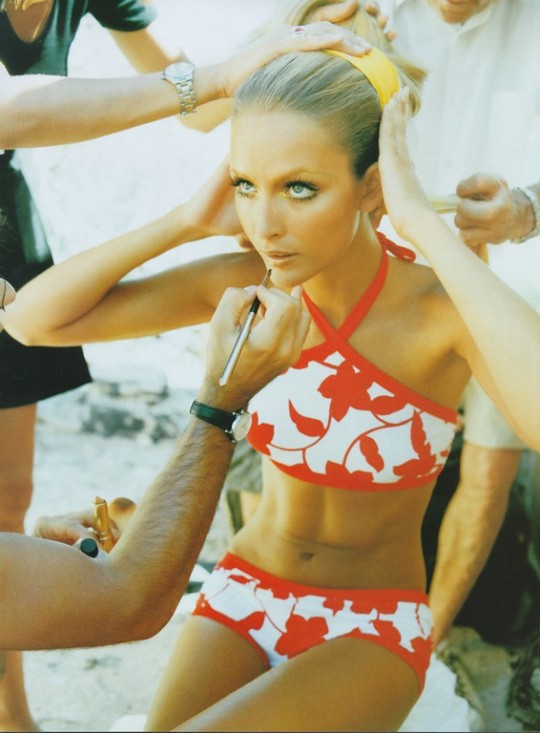
Apple Cider Detox Recipe
12 ounce glass of water
4 Tbsp. Bragg – Apple Cider Vinegar with the mother(the good stuff)
1 tsp. ground cinnamon
4 Tbsp. lemon juice or one lemon
1 pinch cayenne pepper (if you please)
4 Tbsp. honey (raw honey if possible) or 1/2 Teaspoon sweetener
A slice of apple (optional)
Mix together add ice and apple slice and enjoy
0 notes
Photo
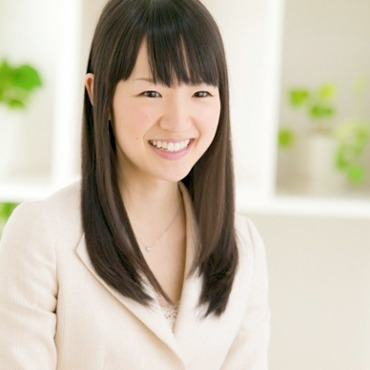
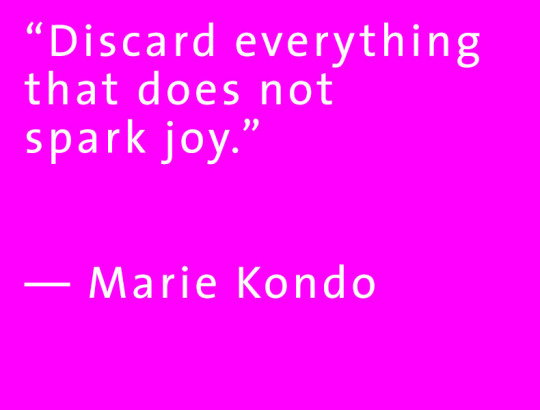
Marie Kondo - "The Art of Tidying Up."
- before you "organize" you "discard"
- Anything that doesn’t make you happy or isn’t absolutely necessary should be touched, thanked and sent on its way, the bestselling Japanese author says
- f you haven’t communed with your socks lately, thanked your shoes for their hard work or bowed (at least mentally) to your home in appreciation, maybe it’s time to consider doing so.
“It is very natural for me to say thank you to the goods that support us,” says Marie Kondo, whose method of lovingly connecting with belongings that “spark joy” and bidding a fond but firm farewell to the rest is popular in Japan and is now catching on elsewhere.
- Kondo sees tidying as a cheerful conversation in which anything that doesn’t “spark joy” is to be touched, thanked and ceremonially sent on its way towards a better life elsewhere, where it can discover a more appreciative owner.
- The results can be life changing, she says. Clients suddenly find themselves surrounded entirely by things that provide clarity, unencumbered by belongings that carry baggage (unwanted gifts, clothes that no longer fit) or anxieties about the future. Even her book, she says, should be quickly discarded when it’s no longer needed.
- Part of what makes her method unusually speedy is that instead of decluttering room by room, she tackles belongings by subject, starting with what is easiest to part with. So, all the clothes, then all the books, then documents, then miscellany and, last and most difficult, photos and mementos.
- Instead of deciding what to get rid of, she says, the focus should be on what to keep: which few things spark sufficient joy or are truly necessary
- After joyfully relegating mountains of unneeded or unloved belongings to charity or the bin, she turns to organising what is left. The key, she says, is storing things mostly in drawers, arranged so everything can be seen at a glance and nothing is stacked, a practice decidedly unkind to items at the bottom.
- So T-shirts and socks (the ones you’ve kept because they make you happy) are rolled and arranged beautifully, like sushi in a bento box.
- “Visible mess helps distract us from the true source of the disorder.”
- “Putting things away creates the illusion that the clutter problem has been solved. But sooner or later, all the storage units are full, the room once again overflows with things, and some new and “easy” storage method becomes necessary, creating a negative spiral.”
- “The point in deciding specific places to keep things is to designate a spot for every thing.”
- “No matter how wonderful things used to be, we cannot live in the past. The joy and excitement we feel here and now are more important.”
- “The most basic rule is to hang clothes in the same category side by side, dividing your closet into a jacket section, a suit section, and so on. Clothes, like people, can relax more freely when in the company of others who are very similar in type, and therefore organizing them by category helps them feel more comfortable and secure.”
- “Clutter is caused by a failure to return things to where they belong. Therefore, storage should reduce the effort needed to put things away, not the effort needed to get them out.”
- “If sweatpants are your everyday attire, you’ll end up looking like you belong in them, which is not very attractive. What you wear in the house does impact your self-image.”
- “Keep only those things that speak to your heart. Then take the plunge and discard all the rest. By doing this, you can reset your life and embark on a new lifestyle.”
0 notes
Video
youtube
If You Love Hitting Your Snooze Button...
When you’re out there partying, horsing around, someone out there at the same time is working hard. Someone is getting smarter and someone is winning. Just remember that. -Arnold Schwarzenegger
0 notes